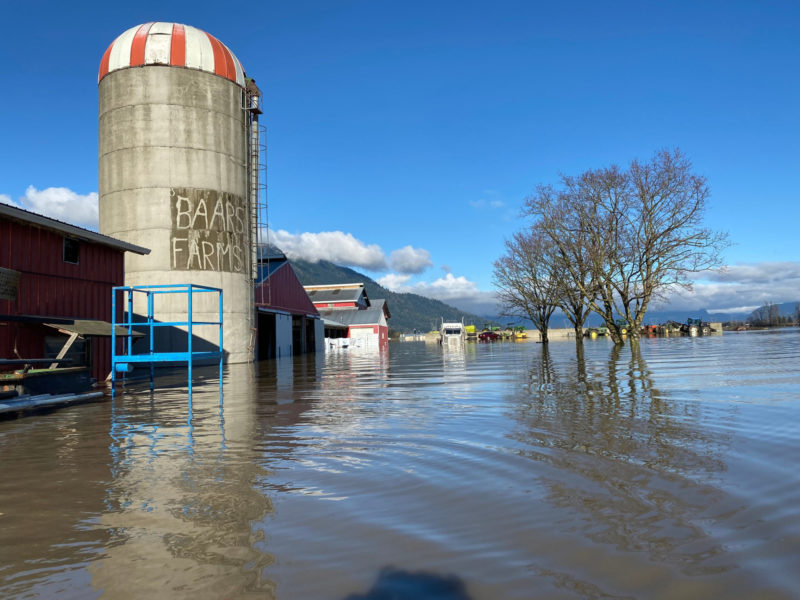ABBOTSFORD – BC residents suffered significant losses this year as wind, wildfire and floods walloped their farms and properties.
But insurance payouts will cover just a fraction of these losses. According to the Insurance Bureau of Canada, total insurable losses as of mid-December totalled less than $650 million.
“A brand new farm building should have coverage,” says Rosy Mounce, a commercial risk advisor with insurance broker Capri CMW in Salmon Arm. “But an older one isn’t going to, so it’s a matter of going through and saying, okay, what kinds of coverages are available to you, what do those cost?”
The narrowing of options for farm insurance in recent years, largely as a result of the massive wildfire seasons of 2017 and 2018, have left farmers exposed.
“With farm insurance in general, there’s not nearly as many options for insurance as there is for a house in a subdivision, for example,” she says. “As we see this increase in extreme weather, we have to start looking further ahead and plan how to be smarter about this. How do we prevent claims as much as possible?”
She says this may involve taking steps to mitigate risks to property as well as understanding the value that insurance provides. Self-insuring – setting aside cash to cover potential losses – may make sense in certain circumstances.
“The conversation is, ‘What does my coverage look like, and what can I do to protect my property?’” she says. “We can help people have a better understanding if there’s gaps in their insurance or if there’s certain things that they just need to be prepared to protect on their own because there’s not going to be an insurance policy to help them.”
She advises people to buy insurance understanding both the cost and the support they’ll receive in the event of a loss.
“[This past year] is going to bring to light a lot more demand on farmers and business owners … to really know what they’re covered for and have a good relationship with their broker – that’s what we want,” she says. “Insurance coverage is a portion of risk management. It’s not the whole thing.”
The fine print
BC Grain Producers Association director Ernest Wiebe told producers following the wild windstorm that destroyed grain bins in Prespatou at the end of June that they need to be aware of what their insurance policies cover. Many were surprised that grain bins were not covered by policies for structures, for example.
“When you see out-buildings on your policy, … that’s only something that would be connected to a residence,” he says. “It has to be on the farm policy.”
Some policies will exclude specific perils, and not all will cover the full replacement value in the event of a loss. Deductibles may differ between policies, too, and incur different premiums.
In his case, the $2,000 coverage limit for his greenhouse meant he was on the hook for most of the rebuild cost after it was destroyed. Meanwhile, his shop buildings are only covered for fire and lightning, leaving him on the hook for damage as a result of other perils.
“Go over your policy and have a complete awareness of what you’re paying for and what is covered,” he says.
Assessment values
There is also the question of the impacts recent disasters will have on property values.
BC Assessment Authority notices arrive the first week of January. The statements reflected the value of properties on July 1, 2021, meaning many property owners will see assessed values that don’t reflect current realities.
“BC Assessment is committed to providing fair, accurate and reliable property assessments,” BC Assessment told Country Life in BC, noting that owners can request amendments within the usual window for appealing assessments. The deadline this year is January 31, 2022.
The authority’s page related to weather-related concerns notes that “property owner self-reporting is critical to ensuring 2022 property assessments are fair and accurate.”
Properties damaged or destroyed between November 1 and December 31, and which were not repaired by December 31, may be eligible to receive an amended assessment. BC Assessment encourages owners to submit details on the damage or loss, including repair costs (if known) and pictures.


 High grain prices welcome, but harvest falls flat
High grain prices welcome, but harvest falls flat